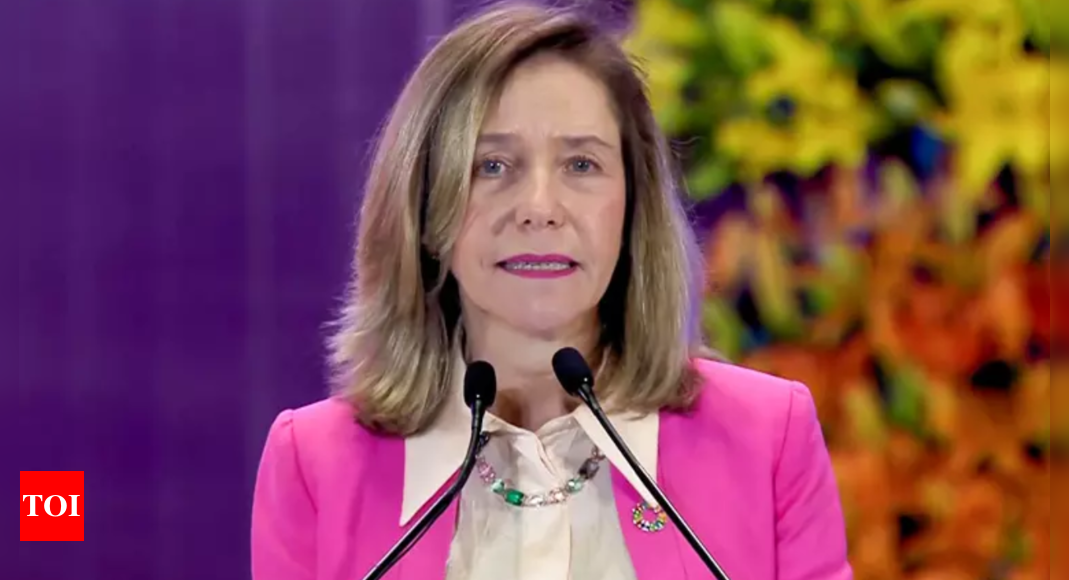NEW DELHI: World Meteorological Organization (WMO) Secretary General Celeste Saulo on Tuesday said the rise in global average temperature violated the Paris Agreement The 1.5 degrees Celsius threshold in 2024 does not mean that the global climate agreement is dead.
While referring to the average global temperature rise of 1.55 degrees Celsius in 2024 during the pre-industrial period (1850-1900), he called the increase a “very serious danger” and called for decisive climate action in 2025 to reduce greenhouse gases and accelerate the transition to renewable energy.
Saul addressed the 150th foundation day celebration of the Indian Meteorological Department, which was attended by Prime Minister Narendra Modi, Earth Sciences Minister Jitendra Singh, India Meteorological Department chief Mrutyunjay Mohapatra , and meteorologists from India and many other countries, including Japan, Singapore and Oman. Representatives from Pakistan did not attend despite having sent prior confirmation, while Bangladesh had declined participation in advance, citing restrictions on non-essential foreign travel at the government’s expense.
Saulo’s comment on that occasion means that failure to meet the warming levels referred to in the Paris Agreement should be understood as an increase in temperature over a prolonged period, usually decades or more. The temporary break (one or more individual years exceeding 1.5 degrees Celsius) does not necessarily mean that efforts to limit temperature rise above pre-industrial levels as set out in the agreement are out of reach.
The WMO had confirmed last week that 2024 was the warmest year on record and that the last 10 years (2015-2024) had been in the top ten in an extraordinary streak of record temperatures.
It said the global average surface temperature was 1.55 degrees Celsius (with an uncertainty margin of ±0.13 degrees Celsius) above the 1850-1900 average, making it the first calendar year with a global average temperature of more than 1.5 degrees Celsius above the pre-industrial level.
Lauding the IMD’s role as a cornerstone of meteorological observation, forecasting and research across the Indian subcontinent for 150 years, Saulo said: “This legacy of dedication and innovation has enhanced India’s resilience and contributed greatly measure to the global good”.





